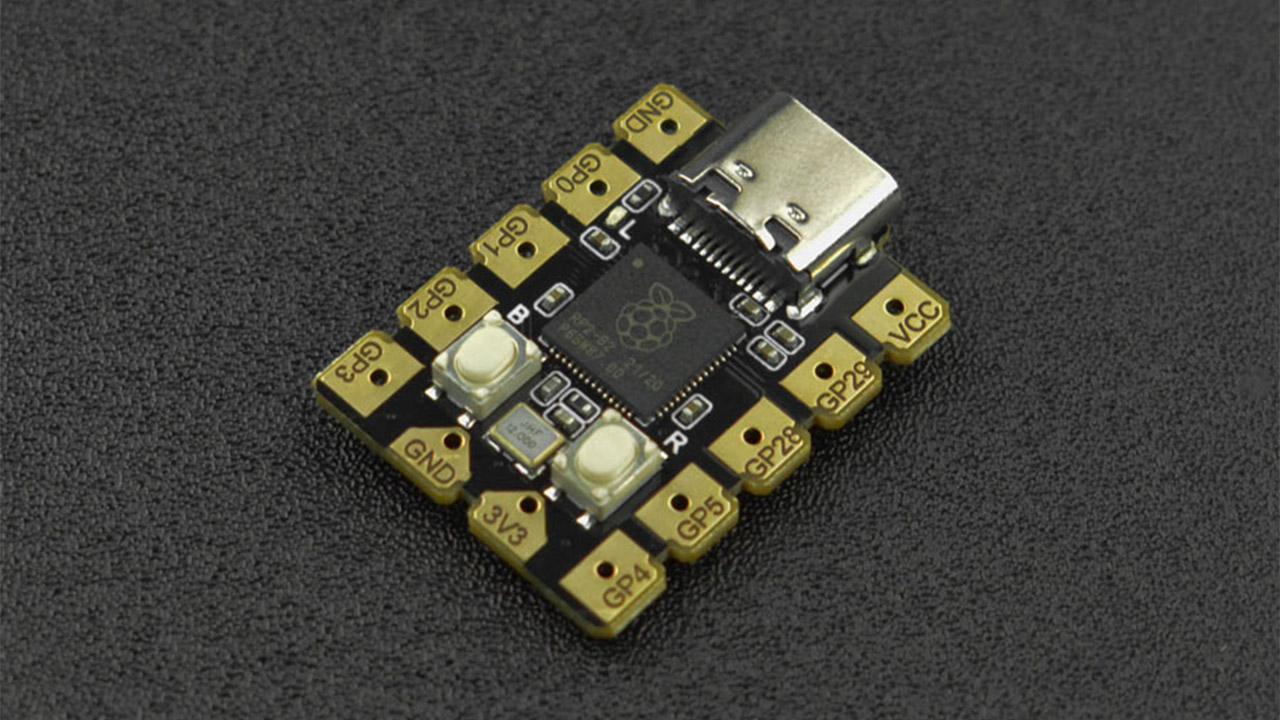DFRobot's Beetle Board Makes a Connection With RP2040
Easier soldering for fatter fingers
It’s been a while since we’ve spotted a new RP2040 development board, so it’s nice to see the Beetle RP2040 from DFRobot (brought to our attention by CNX Software) added to a sector that already includes the PiMoroni Tiny and Adafruit QT Py.

What stands out about the Beetle is that it has just 12 attachment pads with through-holes around its edge, compared to 26 on the larger Raspberry Pi Pico, 19 on the Tiny, and 14 on the QT Py. Of these, two are GND, two voltage in/out, and the rest GPIO, enabling up to 2x I2C, up to 2x UART, SPI, and up to 2x analog inputs. In addition, being fewer and spread across three sides of the controller, the pads are larger than on other RP2040 devices at 4mm x 3.5mm, and easier to solder.
The Beetle measures 27 x 20mm, with its thickness determined by the USB-C port used for power and data transfer. For comparison, the QT Py measures 22 x 18mm, and the Tiny lives up to its name at 19 x 18mm. The RP2040 specs are much the same as everywhere else, with a dual-core Cortex-M0+ processor running at up to 133MHz, with 264kB of SRAM. In addition, there's 2MB of flash storage for your instructions, which is lower than that found on some other boards, as well as Boot and Reset buttons, plus a user-addressable LED.
Creating a project, of course, requires programming, which comes via the familiar C/C++ and Micro/Circuit Python SDKs and Arduino, as well as Mind+, a graphical programming interface based on Scratch 3.
Despite being apparently more limited than others, the Beetle has several useful connections and would make a fine controller for lighting, peripherals, or reacting to sensor data. It sells for less than $7 from the DFRobot store and, at the time of writing, appears to be in stock. Other Beetle boards, based on ESP-32 and ATmega controllers, are also available but have different form factors.
Get Tom's Hardware's best news and in-depth reviews, straight to your inbox.

Ian Evenden is a UK-based news writer for Tom’s Hardware US. He’ll write about anything, but stories about Raspberry Pi and DIY robots seem to find their way to him.